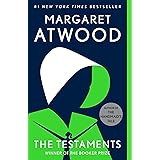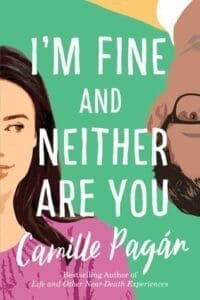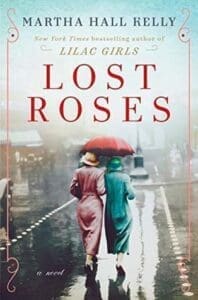If You Want to Make God Laugh by Bianca Marais – 432 pages
ARC courtesy of G.P. Putnam’s Sons in exchange for an honest review.
Book Blurb:
In a squatter camp on the outskirts of Johannesburg, seventeen-year-old Zodwa lives in desperate poverty, under the shadowy threat of a civil war and a growing AIDS epidemic. Eight months pregnant, Zodwa carefully guards secrets that jeopardize her life.
Across the country, wealthy socialite Ruth appears to have everything her heart desires, but it’s what she can’t have that leads to her breakdown. Meanwhile, in Zaire, a disgraced former nun, Delilah, grapples with a past that refuses to stay buried. When these personal crises send both middle-aged women back to their rural hometown to lick their wounds, the discovery of an abandoned newborn baby upends everything, challenging their lifelong beliefs about race, motherhood, and the power of the past.
My Review: 5 stars
If You Want to Make God Laugh was an evocative and compelling book in which the storyline utterly mimics the title’s meaning. We make plans, G-d changes them. It’s an adage I’ve heard many times, and this book reflects this through powerful storytelling.
The author’s first book, Hum If You Don’t Know the Words, blew me away with the excellent writing, an enchanting story and that the author simultaneously taught me so much in the process. Her second book proves that her first book was not a one-hit wonder. Marais, once again, has a woven a complex story with three distinct threads, each equally gripping.
This book takes place in South Africa in the late nineties when Mandela was elected president. Three women, seemingly different, have more in common than they think. Each of them has unique secrets and regrets, which makes them feel hopeless and alone. Often, it’s our biggest challenges that become the stepping stones to moving forward. With all the characters in emotional pain and despair, it would be easy for this book to fall into a heavy pit of gloom; let me assure you, there is hope, light and even some humor to keep the story in balance.
Being raised in South Africa, the author has a great understanding of the country, knew the pulse of the time-period and the heart-beat of the people. While living there, the AIDS epidemic was in full throttle. For many years, Marais volunteered as an aid worker for AIDS afflicted orphans. I’m sure it was those experiences that allowed Sodwa’s circumstances to feel so real.
Structurally, this book was brilliant. Three characters narrate this story, each with their own chapter – that’s nothing new. What made this book unique is that two of characters are written in the first person and the other, Sodwa, is in the third. Additionally, there are references to her first book such as the Soweto uprising and cameos of characters that were beloved to the reader. Small nuances like that gave the book a healthy dose of oomph and depth. Really, this book is a slam dunk covering marriage, Catholicism, corruption in the church, sisterhood, rape, AIDS, homosexuality, white supremacy, parenting, friendship and love.
In a nutshell, it’s an enthralling story with multi-faceted characters with a strong sense of both place and time. Book clubs will love this one!
Quotes I liked:
That’s the thing about family: the truest things we say to each other are never in words.
“… thinking that time begins anew even as we drag our past into the future
“But I know better than anyone how the heart can play the most terrible tricks on the mind. It’s a traitorous best that can’t be trusted at the best of times, but even less so when it’s so utterly broken.”
“She wants to remark that it was the white woman who provided and not God, which makes it charity rather than a blessing, but that is a sacrilege her mother would never allow.”

















